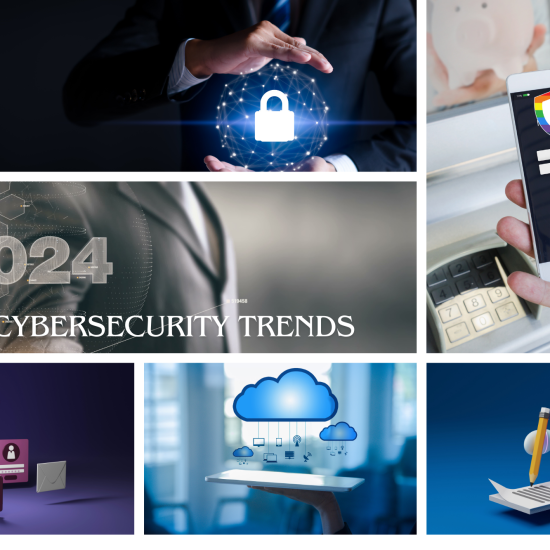The importance of Data Protection for a modern-day business
In a rapidly evolving digital world, every aspect of one’s life has become dependent on technology. From ordering food online to shopping for clothes, medicines, books, and other necessary items to booking tickets, appointments with doctors, etc., to digital payments, conducting banking transactions, and submitting university applications online has led to an exponential increase in user-generated data. As the amount of digital data continues to expand at an unprecedented rate, so does its value — and the challenge of keeping it safe. Consumers are increasingly aware of how valuable their personal information can be as well as the dangers of it being compromised. Besides consumer information, businesses’ intellectual property or trade secrets are at risk as well. Today, data has become one of the most important assets a company has, making data protection a top priority for any company.
In this article, you will read about
What is data protection?
Why is data protection important?
Data Protection Technologies and Practices to Protect Your Data
Tips for implementing data protection in your organization
What is data protection?
Data protection is the process of safeguarding important data from corruption, compromise, or loss and providing the capability to restore the data to a functional state should something happen to render the data inaccessible or unusable.
Data protection assures that data is not corrupted, is accessible for authorized purposes only, and is in compliance with applicable legal or regulatory requirements. Protected data should be available when needed and usable for its intended purpose.
Data protection is becoming more intricate as the number of devices to monitor and protect expands. Today, it includes IoT devices and sensors, industrial machines, robotics, wearables, and more. Data protection helps reduce risk and enables a business or agency to respond quickly to threats.
Why is data protection important?
Data protection for businesses is especially important because data breaches and losses can end up costing a not only significant amount of money but a loss of reputation leading to a complete shutdown. Data protection is important to:
1. Secure from data breaches: Data breaches cause tremendous problems, not only for the company affected but also for its clients. Depending on the sector such as healthcare, critical infrastructure, and education, stolen data can range from relatively benign information to highly classified or extremely sensitive data.
2. Ensuring business continuity: Business continuity threats that endanger sensitive data come in many different forms, including cyber-attacks and security incidents, but disaster risks, data outages, and regulatory changes as well. Consumers are becoming more privacy-conscious, and organizations must commit to protecting consumer data to maintain and improve their brand value, prove transparency and trustworthiness, as well as to strengthen and grow their business. By being aware of the dangers and taking reasonable precautions, companies can substantially reduce the chances that a business continuity threat will disrupt the organization.
3. Meeting compliance requirements: Governments around the world are rolling out new regulations on how sensitive customer information like name, address, credit card number, etc. can be collected, stored, and used. The European Union’s General Data Protection Regulation (GDPR) has fuelled the appearance of data protection laws on a global level, including Brazil, California, Thailand, and India.
Data Protection Technologies and Practices to Protect Your Data
When it comes to data protection technologies and practices, there are various options to choose from. Some of the most commonly used include:
1. Data discovery—The first step in data protection, involves discovering which data sets exist in the organization, which of them are business critical, and which contain sensitive data that might be subject to compliance regulations.
2. Data loss prevention (DLP)— A set of tools and processes used to secure data from theft, loss, misuse, deletion, or other illegal or inappropriate forms of contact Data loss prevention solutions often include several tools to protect against and recover from data loss.
3. Backup—Creates copies of data and stores them separately, making it possible to restore the data later in case of loss or modification. Backups are a critical strategy for ensuring business continuity when original data is lost, destroyed, or damaged, either accidentally or maliciously. You can secure backups with a multi-cloud strategy with Rainbow Secure. Contact us to learn more.
4. Data resiliency – Building resiliency systems within the software and hardware of an organization’s system to ensure security in case of natural disasters or power outages
5. Firewalls— Tools used for monitoring and filtering the network traffic to ensure data is transferred or accessed only by authorized users
6. Access Management: Access management controls ensure data integrity by limiting access to digital assets. This allows granular control over which groups of people are granted access to systems, and when. Controls that help you verify credentials and assure that user privileges are applied correctly. These measures are typically used as part of an identity and access management (IAM) solution and in combination with role-based access controls (RBAC). Deploy Rainbow Secure SSO (Single Sign-on) to have tight control over what apps your employees and partners can access. Use Rainbow Secure Login Solutions (comes with Rainbow Secure SSO) to have multi-layer security for all the business applications and cloud services that your employees and contractors use.
7. Encryption and Cryptography: — Encryption uses an algorithm to obfuscate clear text by scrambling the characters. It produces them in a format that requires encryption keys to decrypt for viewing. This restricts access to authorized viewers with the correct encryption keys. Encryption is commonly used for file storage and database security. You can use Secure Business Email from Rainbow Secure which gives you the ability to encrypt your email with sensitive data so your data is even when you share it via email.
8. Endpoint protection— Monitoring and securing endpoint access extends the reach of a data protection program by covering network-connected devices no matter where they are located. Protects gateways to your network, including ports, routers, and connected devices. Endpoint protection software typically enables you to monitor your network perimeter and filter traffic as needed. Endpoint protection is more important than ever now.
9. Data erasure— Erasure is more secure than typical data removal methods because it uses specific software to remove and overwrite data. Data erasure techniques also verify the data cannot be recovered. Erasing unnecessary data is a requirement of many compliance regulations, such as GDPR (General Data Protection Regulation).
10. Disaster recovery—a set of practices and technologies that determine how an organization deals with a disaster, such as a cyber-attack, natural disaster, or large-scale equipment failure. The disaster recovery process typically involves setting up a remote disaster recovery site with copies of protected systems and switching operations to those systems in case of disaster.
Tips for implementing data protection in your organization
1. Take expert opinions and help
Since data protection is necessary to protect critical information and your organization’s operations, it’s valuable to bring in these experts to ensure adequate security mechanisms. By turning to experts in data privacy and data protection, your organization can protect data in the most secure way possible.
2. Limit user access
One of the primary causes of companies having data breaches and not meeting regulations is human error. Due to the risk of human error, it’s often a good idea to limit employee access to sensitive data. When fewer people have access to your data, you’ll face less risk from mistakes or improper use of information.
3. Automate daily tasks and processes
It is difficult for employees to remember every regulation and compliance law they need to follow while conducting daily tasks, data compliance automation can make their jobs easier. As a result, your employees won’t have to worry about meeting compliance standards so often and won’t be put in a position where they’re likely to make mistakes. In the same way, automated protection solutions can reduce the chances of data breaches and ensure various tasks get completed without error.
Rainbow Secure has laid benchmarks in providing exemplary login and secure email solutions, to businesses such as Certified Public Accountants (CPA) firms, Healthcare Practitioners, Business Schools, Wellness Startup, E-Commerce Retailers, and Retail Business owners where it strengthened business cyber security by mitigating cyber-attacks, cyber risk, and account takeover fraud.
Do you have more questions about the Rainbow Secure Login Solutions, Single Sign-On, and Business Email Compromise? Contact us today. Email us at Hello@rainbowsecure.com







